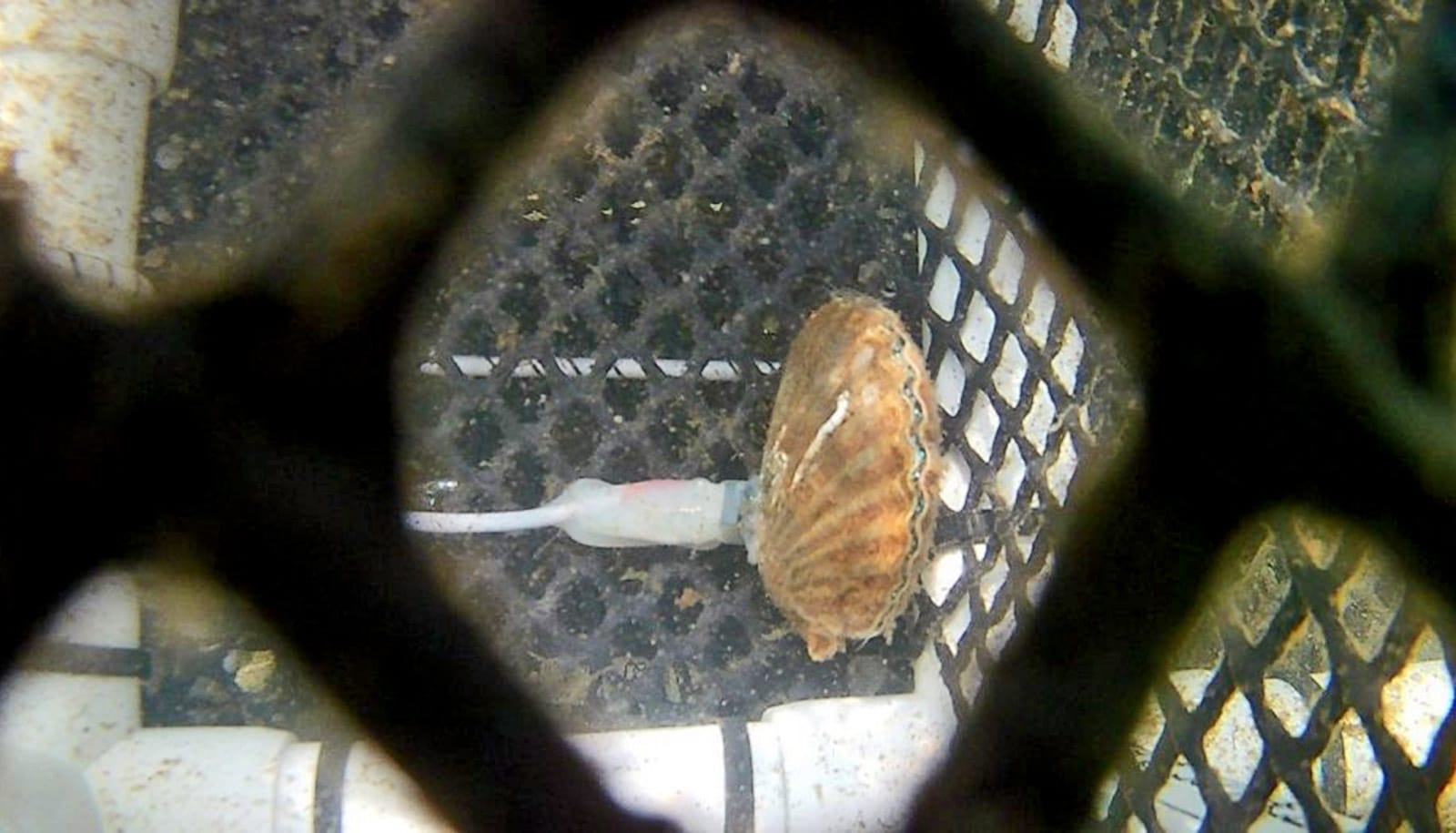Warming waters and heat waves have contributed to the loss of an economically and culturally important fishery, the production of bay scallops, according to a new study.
As climate change intensifies, heat waves are becoming more and more common across the globe. In the face of such repeated events, animals will acclimate, migrate, or perish.
Since 2019, consecutive summer mass die-offs of bay scallops in the Peconic Estuary on Long Island, New York, have led to the collapse of the bay scallop fishery in New York and the declaration of a federal fishery disaster, with landings down more than 99%.
The findings in Global Change Biology reveal that extreme summer temperatures, becoming more frequent under climate change, exacerbate the vulnerability of bay scallops to environmental stress and has played a role in the recurrent population crashes.
The study reports the mass die-off of all scallops at a New York site in 2020, when an eight-day summer heat wave event coincided with repeated episodes of low oxygen. Yet, scallops at locales with higher oxygen or lower temperatures survived. Further investigation that year confirmed that the combination of high temperatures and low oxygen reduced feeding and energy reserves, causing mortality in ecosystem and laboratory scenarios.
“Global warming is happening at an uneven pace in space and time. It just so happens that summer water temperatures in the Northeast are increasing at a rate more than three times the global average, leaving organisms adapted to cooler temperatures endangered,” says senior author Christopher Gobler, chair of coastal ecology and conservation at Stony Brook University.
By using a combination of satellite temperature and long-term environmental records, field and laboratory experiments, and measurements of scallop heartbeat rates in an ecosystem setting because scallops heartbeat rates vary with water temperatures, the researchers demonstrated that coastal waters from New York to Massachusetts—home to the nation’s northern bay scallop fisheries—are rapidly warming and that bay scallops have become increasingly susceptible to the combination of high temperatures and impaired water quality.
The bay scallop fishery was formerly one of the largest shellfisheries on the East Coast and has progressively vanished from regions south of New York. With the New York fishery collapsed, the only remaining commercial US fishery is in Massachusetts.
The study also reveals that although Massachusetts waters are still in the safe range for bay scallops, they have warmed at a rate even faster than New York waters and could be threatened in the future.
Stephen Tomasetti, a graduate of Stony Brook’s School of Marine and Atmospheric Sciences and currently a visiting assistant professor of environmental studies at Hamilton College, points to other examples of heat-induced mass mortality on the East Coast, like the loss of lobsters in Long Island Sound and blue mussels in coastal bays south of Delaware.
“Commercial shellfisheries are a vital part of our blue economy, and shellfish habitats are changing rapidly,” he says. “Mitigating further warming by transitioning to clean energy is critical. But while these global efforts are underway, committing to practices that will improve our local water quality like reducing nutrient pollution is also important.”
Warmer waters physically hold less oxygen, so increasing the baseline oxygen levels in the estuary by improving water quality will help offset future oxygen loss from increased temperature.
The authors warn that warming in the Northeast US is projected to continue at a faster pace than the global average. The populations of mobile species like fish can respond by moving to waters with more tolerable temperatures.
But for populations of bay scallops and other economically important shellfish species, movement is limited by their ability to disperse through spawning and the availability of suitable habitat. Populations forced to cope with temperature extremes may be more vulnerable to mass mortality events.
Source: Stony Brook University


